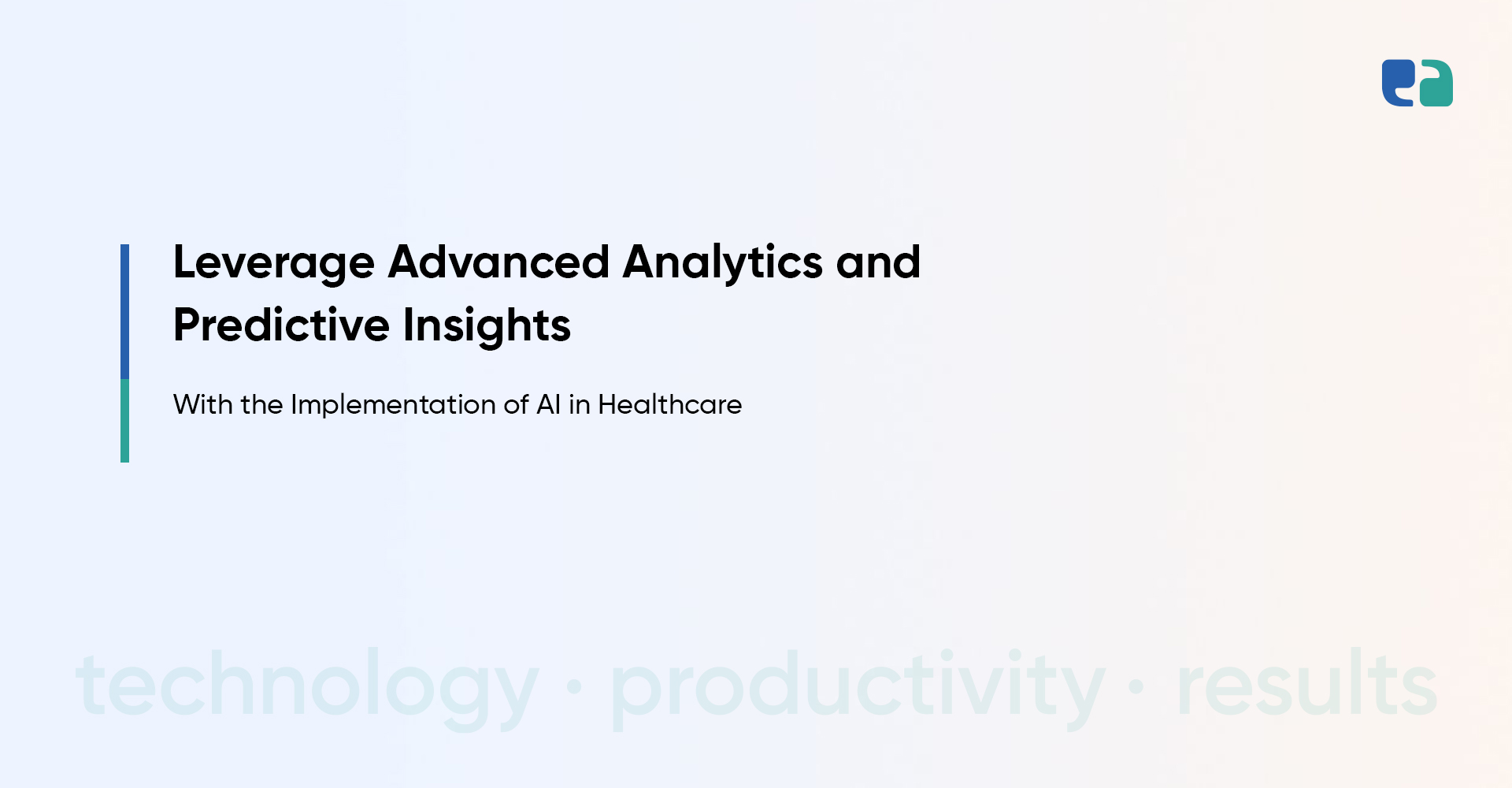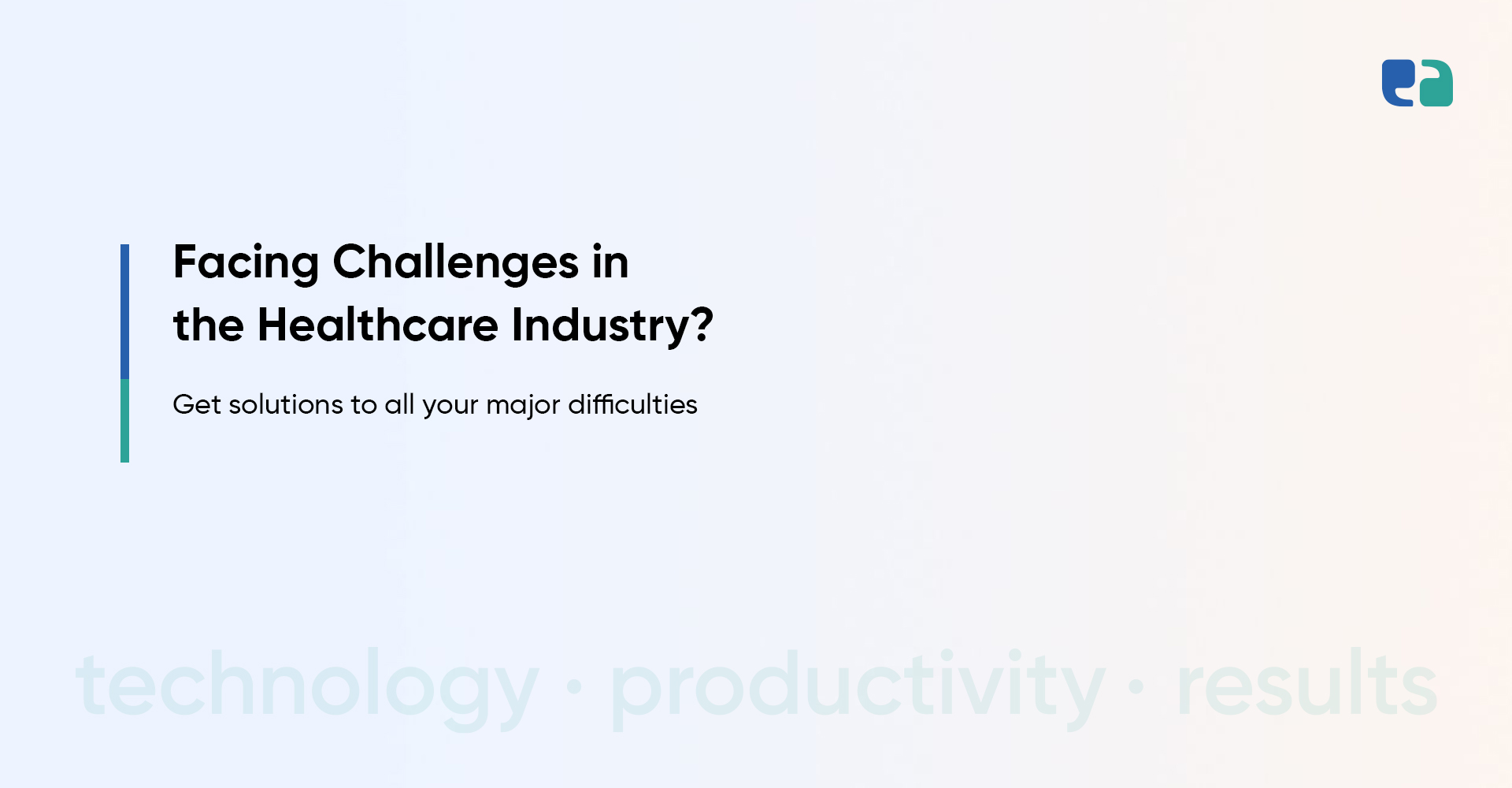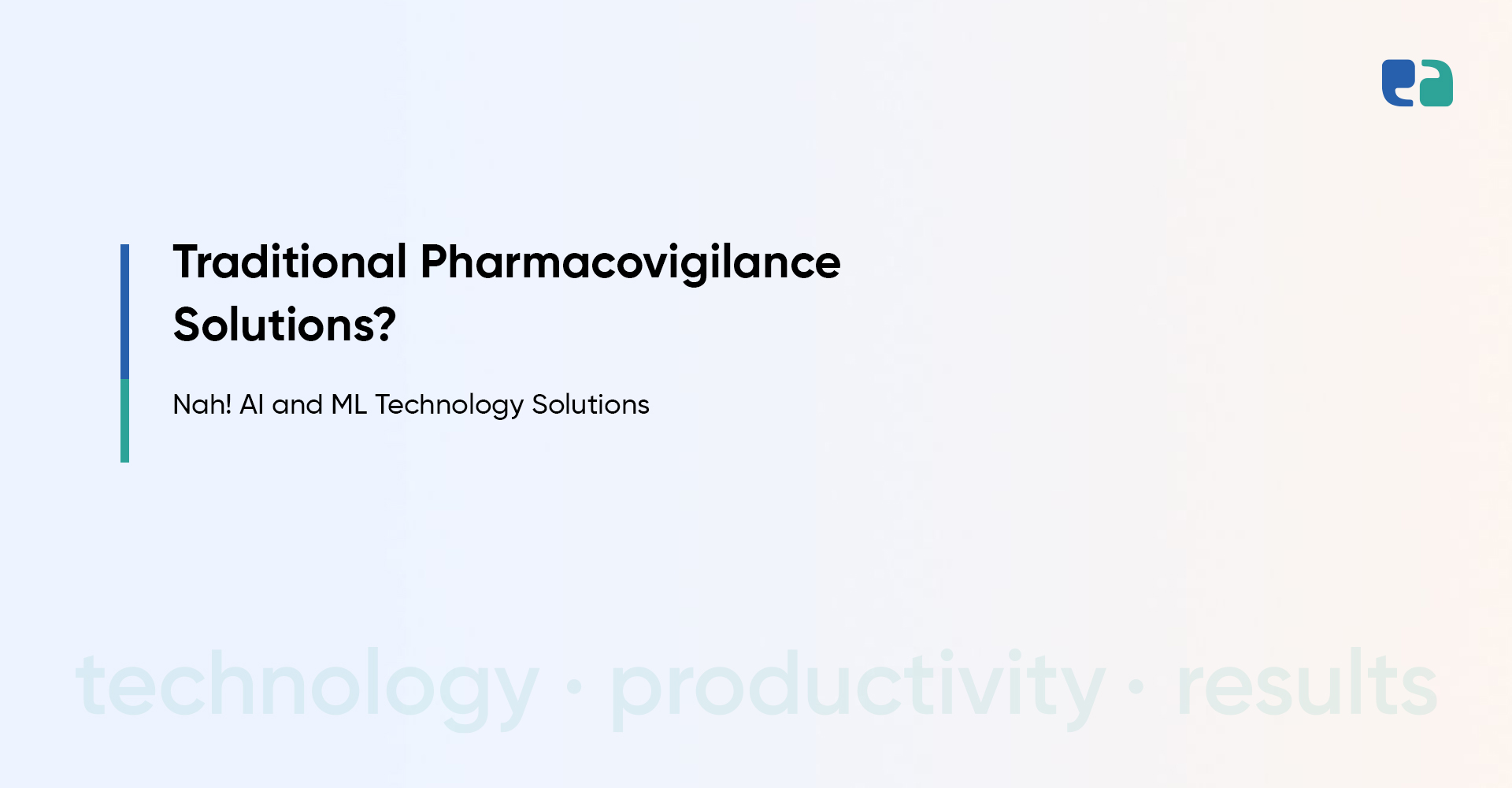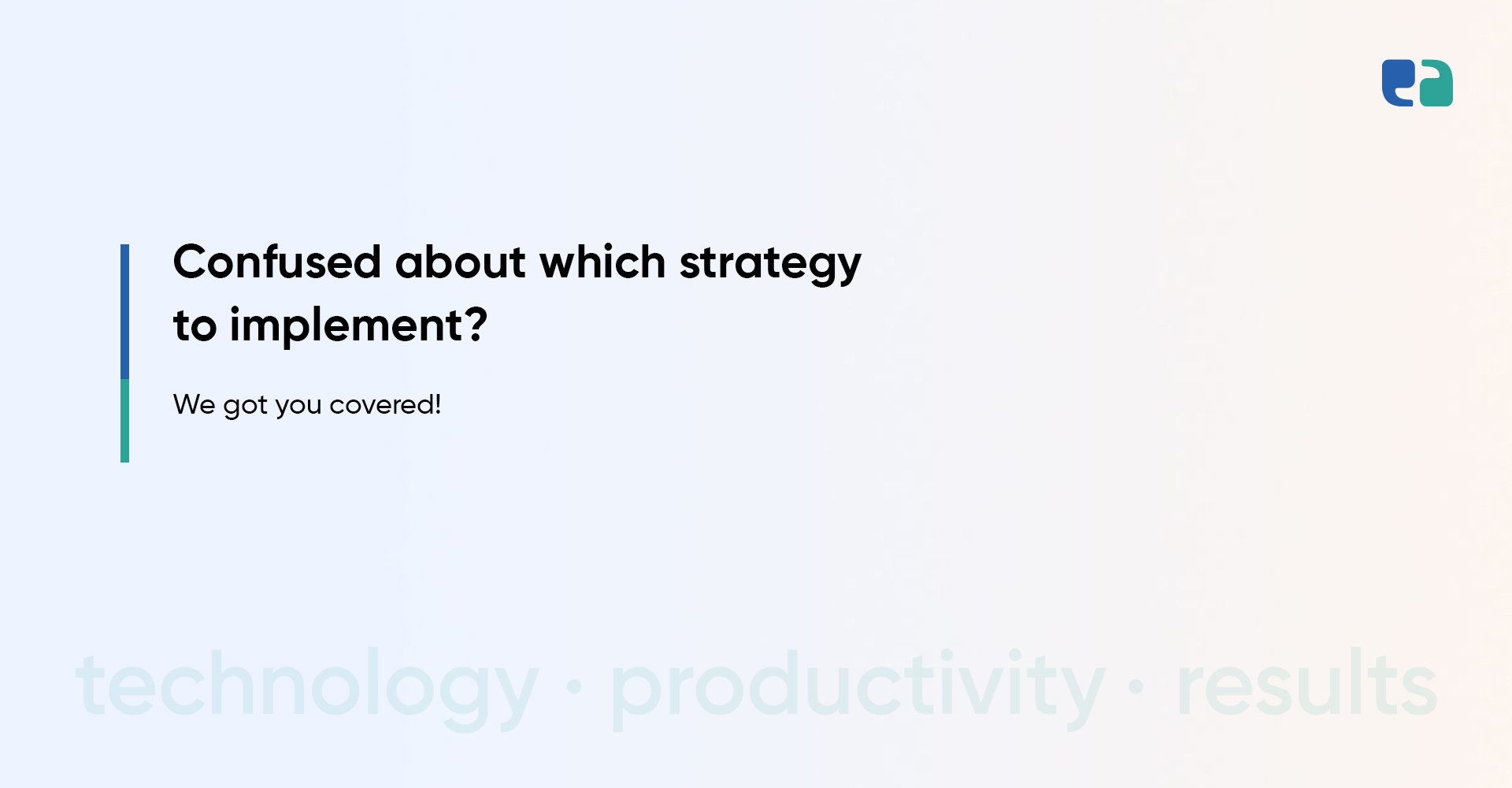Investments in Artificial Intelligence (AI) technology have gone haywire over the years.
This cutting-edge innovation has the potential to
- Revolutionize healthcare delivery
- Improve patient outcomes
- Enhance operational efficiency
However, like any transformative endeavor, there are challenges to be addressed.
The Factors Driving Investments for AI in Healthcare
1. The Need for Enhanced and Diagnostic Accuracy
AI-powered algorithms have demonstrated the ability to analyze vast amounts of medical data and generate accurate diagnoses at a speed surpassing human capabilities.
This capability can reduce misdiagnosis rates, leading to better patient outcomes.
Medical AI applications, such as image recognition algorithms, can analyze medical images like
- X-rays
- MRIs
- CT scans
It helps healthcare professionals identify abnormalities that may go unnoticed by the human eye.
2. Precision Medicine and Personalized Treatment
AI in healthcare can enable providers to develop tailored treatment plans based on
- Individual patient characteristics
- Genetic data
- Real-time monitoring
This personalized approach can optimize treatment effectiveness and minimize adverse effects.
Machine learning algorithms can analyze patient data to identify patterns and predict individual responses to specific treatments or medications.
It enables physicians to deliver personalized care.
3. Cost Reduction and Operational Efficiency
Medical AI-driven automation and optimization can
- Streamline administrative processes
- Automate routine tasks
- Reduce operational costs
This enables healthcare organizations to allocate resources more effectively and improve overall efficiency.
For example, AI-powered chatbots can handle patient inquiries, freeing up administrative staff to focus on critical tasks.
Robotic process automation (RPA) can automate repetitive tasks like data entry, appointment scheduling, and billing, reducing manual efforts and improving productivity.
4. Medical Research and Drug Discovery
Medical AI algorithms can analyze vast amounts of medical literature and scientific data, accelerating the pace of medical research and drug discovery.
This has the potential to bring about breakthroughs in disease understanding and treatment development.
Natural language processing algorithms can extract relevant information from scientific publications and clinical trial data, enabling researchers to identify new insights and potential targets for therapeutic intervention.
The Benefits of AI in Healthcare
1. Improved Patient Outcomes
AI-powered diagnostic tools and predictive analytics can enhance the accuracy and timeliness of diagnoses.
It often leads to improved patient outcomes and reduced mortality rates.
Early detection of diseases, aided by AI algorithms, can facilitate timely interventions, potentially saving lives.
2. Enhanced Efficiency and Productivity
AI-driven automation can streamline administrative tasks, reducing manual efforts and allowing healthcare professionals to focus on delivering quality care.
This can lead to improved productivity and reduced burnout among medical staff.
AI-enabled workflow optimization can help streamline patient admission processes, optimize resource allocation, and facilitate smoother care transitions.
3. Increased Access to Healthcare
Telemedicine and AI-enabled remote monitoring solutions can extend healthcare access to
- Underserved populations
- Remote areas
- Patients with limited mobility
This can bridge gaps in healthcare delivery and improve overall population health.
Virtual consultations and remote patient monitoring devices equipped with medical AI capabilities can facilitate
- Remote diagnosis
- Monitoring
- Follow-up care
It enables the patients to receive quality care from the comfort of their homes.
4. Advanced-Data Analytics and Predictive Insights
Medical AI algorithms can analyze large datasets to identify patterns, trends, and predictive insights.
This can enable proactive intervention, early disease detection, and personalized treatment plans.
By leveraging AI-powered analytics, healthcare providers can gain a deeper understanding of population health trends, identify high-risk individuals, and implement preventive measures.
Barriers to AI Adoption in Healthcare
1. Data Security and Privacy Concerns
Healthcare organizations deal with sensitive patient data, and ensuring robust security and privacy measures is crucial.
Concerns regarding data breaches, unauthorized access, and regulatory compliance may hinder healthcare AI adoption.
Healthcare AI solutions need to comply with stringent data protection regulations, such as the Health Insurance Portability and Accountability Act (HIPAA) in the United States.
2. Lack of Interoperability and Data Standardization
The integration of AI systems with existing healthcare IT infrastructure can be challenging due to
- Variations in data formats
- Lack of interoperability standards
- Siloed data repositories
This hampers seamless data sharing and collaboration.
Healthcare organizations need AI solutions that can seamlessly integrate with their existing systems and enable interoperability between different healthcare providers.
3. Regulatory and Ethical Considerations
Healthcare AI applications need to comply with stringent regulatory frameworks.
Ensuring ethical use of AI, transparency in decision-making, and mitigating biases are key challenges.
Ethical considerations include maintaining fairness, explainability, and accountability in AI algorithms.
It ensures patient consent and privacy throughout the AI-enabled healthcare journey.
Mitigate These Barriers By Partnering With The Best Software Development Company
SyS Creations is a leading healthcare software solutions provider that specializes in developing and implementing software solutions tailored to the unique needs of the healthcare industry.
Our expertise can help healthcare organizations address the following challenges:
1. Data Security and Privacy
We, at SyS Creations, employ robust security measures and encryption techniques to protect patient data, ensuring compliance with regulatory requirements.
We implement stringent access controls, audit trails, and data anonymization techniques to safeguard sensitive information.
Our solutions undergo rigorous security assessments to identify and address vulnerabilities.
2. Interoperability and Data Standardization
We design AI solutions that seamlessly integrate with existing healthcare IT systems, facilitating data exchange and collaboration.
They employ industry-standard protocols and develop data interoperability frameworks to overcome integration challenges.
Our expertise in healthcare data management ensures seamless connectivity and data harmonization across various platforms.
3. Ethical and Regulatory Compliance
We follow ethical AI principles and ensure transparency in our algorithms and decision-making processes.
We conduct thorough audits and assessments to identify and mitigate biases, ensuring fairness and accountability in AI applications.
Our solutions adhere to regulatory requirements and comply with healthcare industry standards.
Connect with us today by clicking on the contact button and let’s discuss how we can assist you with your healthcare challenges.



